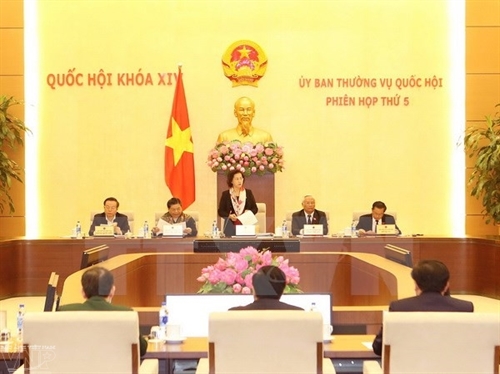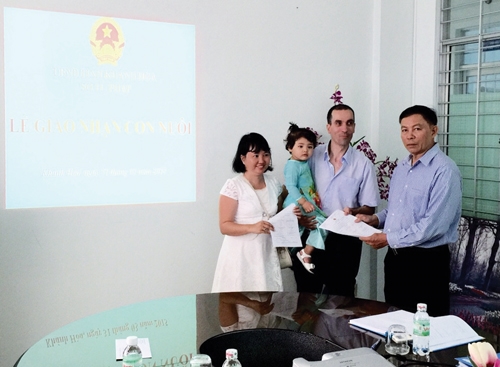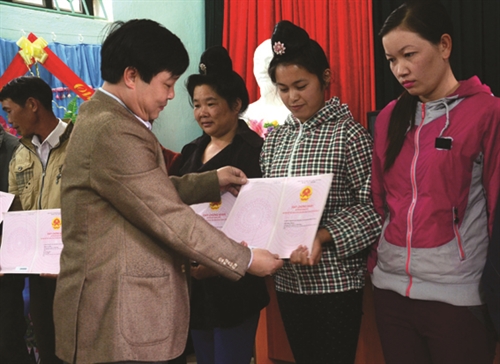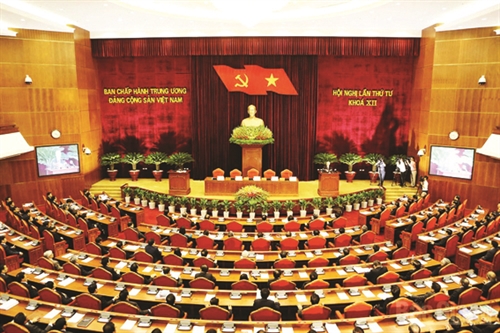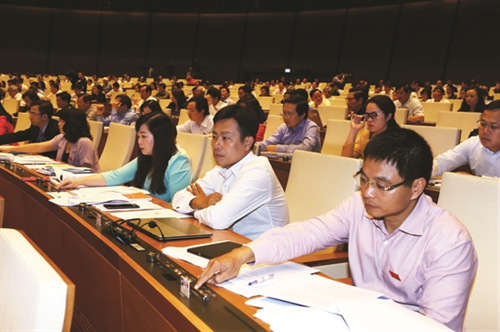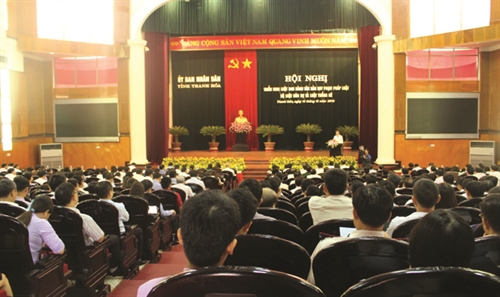Nguyen Thi Dinh, LL.M
Deputy Director-General of the Department of Legal Affairs
Government Committee for Religious Affairs
Compared to the Ordinance on Belief and Religion enacted in 2004 (the Ordinance) and Government Decree No. 92/2012/ND-CP dated November 8, 2012, guiding in detail the implementation of the Ordinance, the Law introduces a raft of major changes.
Expansion of subjects that can exercise freedom of belief and religion
Article 24 of the 2013 Constitution stipulates: “Everyone has the right to freedom of belief and religion, to follow or not to follow a certain religion.” To concretize this provision, the Law states that everyone has the right to manifest his belief or religion, to conduct belief or religious rituals; to learn and practice religious tenets and canons. Everyone has the right to enter religion at a religious establishment or attend a religious school or class. A minor that wishes to become a priest or monk at a religious establishment or attend a religious school must seek consent from his or her parents or guardian. A person held in custody or prison, a person kept at a reformatory or detoxification establishment is entitled to use religious books and manifest his or her belief or religion. These provisions express humanity in the Vietnamese State’s policy on freedom of belief and religion for people whose civic rights are restricted.
So, freedom of belief and religion is the right of everyone, a human right, which is not limited for reasons of citizenship, gender or age.
 |
| PM Nguyen Xuan Phuc meets with leading religious dignitaries in December 2016 in Ho Chi Minh City__Photo: Thong Nhat/VNA |
A separate chapter on the right to freedom of belief and religion
To more clearly reflect the scope of regulation of the Law and substantially express the State’s policy on respect for and protection of the right to freedom of belief and religion of everyone, the Law adds a chapter on this right containing four articles dealing with the right to freedom of belief and religion, the right of religious organizations, the right of freedom of belief and religion of foreigners lawfully residing in Vietnam, and the obligation of organizations and individuals in the exercise of this right.
Registration of collective religious practice
The first new point in the registration of religious practice is that the Law allows more entities to register. The registration of collective religious practice has been regulated in Prime Minister Directive No. 01/2005/CT-TTg dated February 4, 2005, on Protestantism (Directive 01) and in Government Decree No. 92/2012/ND-CP dated November 8, 2012, detailing the implementation of the Ordinance on Belief and Religion (Decree 92). However, these two documents’ provisions on entities entitled to carry out collective religious practice are not totally alike. Directive 01 says that these entities include groups of followers of religious organizations already recognized by the State and groups of religious followers who are not eligible under law to be recognized as religious organizations. Decree 92, however, stipulates that eligible entities are citizens who have the need to gather for religious activities but who are not yet officially registered or recognized. Perpetuating these provisions, the Law provides that the entities entitled to register collective religious practice include those specified in Directive 01 and Decree 92 and members of organizations that have registered for religious activities.
The second new point is that the registration of collective religious practice is not regarded as the starting point for the formation of a religious organization. In comparison, the Ordinance recognizes the time of registration of collective religious practice as the point of time marking the formation of a religious organization which, if later meeting required conditions, can proceed to register its religious activities and apply for recognition.
Period for recognition of entities as religious organizations reduced from 23 years to five years
The Ordinance stipulates that the total period from being approved by a commune-level People’s Committee for carrying religious activities to registering religious activities or being recognized as a religious organization is 23 years.
As per the Law, the period for recognition of a religious organization is five straight years, counted from the time an organization is granted a certificate of registration of religious activities and during which the organization operates on a stable basis.
This reduction will create a more favorable condition for a religious organization to apply for official recognition.
Legal status of religious organizations
Article 30 of the Law states that a religious organization is a non-commercial legal person from the date it is recognized by a competent state body.
For a religious organization which is recognized before the Law takes effect, it will be a non-commercial legal person from the effective date of this Law, provided it adjusts and registers its charter at the latest congress.
For an affiliated religious organization, besides meeting the conditions set out in Clauses 4, 5 and 6, Article 21 of the Law, to become a non-commercial legal person, its parent religious organization must make a request to this effect and it must obtain a new registration certificate from a competent state body.
These provisions constitute a new, important content of the Law clearly defining the legal status of a religious organization or an affiliated religious organization to ensure their rights and obligations when participating in legal relations. These provisions accord with the contemporary approach to management in a rule-of-law state and international law and suit practical activities of these religious organizations.
Bestowal and election of religious dignitaries
The Ordinance puts religious dignitaries and administrative officers in the same category and requires religious organizations to send written registrations for these bestowed, elected or appointed persons to a competent state body. If the state body makes no objection after 20 days, these persons may carry out religious activities according to their titles as registered.
In the course of drafting the Law, many managers and scientists, particularly a majority of National Assembly deputies, asked for clear definitions of dignitaries and administrative officers and determination of their responsibilities and roles in a religious organization as well as in relations with related organizations and persons, especially with competent state bodies. It is also necessary to specify which issues need to be notified and registered so as to raise the responsibility of religious organizations and persons in their activities.
To meet this requirement, the Law clearly defines dignitaries and administrative officers and different procedures for bestowal or election of dignitaries (Article 33) and for appointment and election of administrative officers (Article 34).
Bestowal of religious ranks on foreigners lawfully living in Vietnam
This a totally new provision conformable with religious activities, the international integration trend and international practices. It enables foreigners lawfully residing in Vietnam to be bestowed religious ranks when satisfying certain conditions set out by the Law. These conditions include having full civil act capacity, not being subject to any administrative sanction in the field of belief and religion; having no criminal record or not being accused of a criminal offense under the criminal procedure law; having been trained in religion at a Vietnamese religious training institution; and observing Vietnamese law.
Religious training institutions and classes
Regarding religious training institutions, the Law adds new provisions renaming training schools for religious activities into religious training institutions, setting establishment conditions and determining the competence to approve these institutions, and regulating their activities.
As for religious training classes, the Ordinance provides that training classes may be held for professional religious activists, and provincial-level People’s Committees have authority to approve the opening of these classes. Meanwhile the Law stipulates that the opening of training classes for professional religious activists must be registered with provincial-level specialized agencies in charge of belief and religious affairs while the opening of training classes for non-professional religious persons must be notified to district-level People’s Committees of places where such classes are held.
Clearly, the above provisions will create more favorable conditions for religious organizations to open religious training classes and ensure the right to attend religious training classes for everyone.
Registration of belief activities and notification of religious activities
Concerning registration of belief activities and notification of religious activities, the Law now only requires first-time registration or notification to a competent authorities and additional registration or notification of new contents. This is a new, progressive provision in line with the ongoing administrative reform in Vietnam.
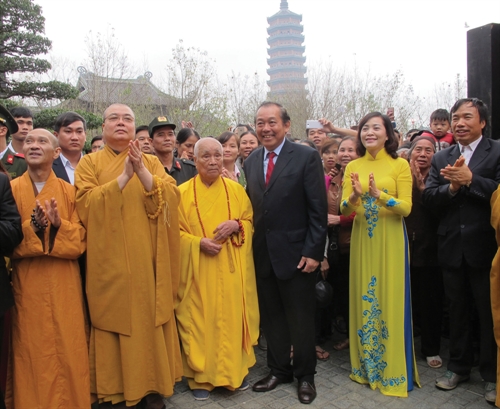 |
| Deputy PM Truong Hoa Binh and leading Buddhist dignitaries join the ceremony to open the new year’s festive season at Bai Dinh pagoda, Ninh Binh province__Photo: Ninh Duc Phuong/VNA |
New provisions more favorable to foreigners lawfully residing in Vietnam
The Law provides in Article 8 for the right to freedom of belief and religion of foreigners lawfully residing in Vietnam. Vietnam respects and protects the right to freedom of belief and religion, including the rights to practice religion, to participate in belief and religious activities; to use lawful places for concentrated religious activities; to invite religious dignitaries being Vietnamese to conduct religious rites and preach; and to invite foreign religious dignitaries to preach; to profess religion at religious institutions. These foreigners may learn at religious training institutions and attend religious training classes held by religious organizations in Vietnam, and bring along religious publications and objects for religious activities in accordance with Vietnamese law. Foreign religious dignitaries lawfully residing in Vietnam may preach at religious organizations and other lawful places in Vietnam.
On the basis of the above general provisions, the Law has a section with seven articles on religious activities involving foreign elements. A noteworthy new provision is that Vietnam will create conditions for groups of foreigners lawfully living in Vietnam who have a need to carry out concentrated religious activities to rent or borrow places for their religious activities. Other provisions allow foreigners to be bestowed or elected to religious ranks by religious organizations in Vietnam and Vietnamese religious organizations to join foreign religious organizations, etc.
Activities to be notified to competent authorities
To ensure security, order, safety and environmental protection for religious activities, the Law specifies a number of activities that are only required to be notified to competent authorities for information and collaboration with religious organizations. Representatives of belief or religious organizations must notify their regular festive events; revenues and purpose of use of revenues collected from the organization of belief festivals; activities of training institutions; newly bestowed or elected persons; transfer and dismissal of religious dignitaries or title holders; annual conferences, etc. This notification requirement aims to enhance responsibility of religious organizations and persons in their belief or religious activities.
Responsibilities of competent state bodies
The Law specifies responsibilities and powers of the Government, ministries, sectors, People’s Committees and competent state management bodies for belief and religious activities.
Particularly, it delegates some current powers of the Prime Minister to the central body in charge of state management of belief and religion, including recognition of religious organizations; establishment, division, separation, merger and consolidation of affiliated religious organizations operating in many provinces and centrally run cities; establishment of training schools for professional religious activists; and receipt of notices of dissolution of these schools. This delegation will not only help reduce workload for the Prime Minister but also make belief- and religion-related administrative procedures more simple and convenient for related organizations and individuals.
With the above new contents, it is hoped that the Law will create conditions for and better guarantee the right to freedom of belief and religion for everyone, as well as enhance the responsibility of agencies and organizations in the implementation of the Law.-
| Structure of the Law on Belief and Religion The freshly passed Law on Belief and Religion consists of nine chapters with 68 articles. Chapter I - General provisions, contains five articles on the scope of regulation and subjects of application, definitions, responsibilities of the State for guaranteeing the right to freedom of belief and religion, responsibilities of the Vietnam Fatherland Front, and prohibited acts. Chapter II - The right to freedom of belief and religion, has four articles dealing with the right to freedom of belief and religion of everyone, rights of religious organizations, the rights to freedom of belief and religion of foreigners lawfully residing in Vietnam; and obligations of organizations and individuals in the exercise of this right. Chapter III - Belief activities contains six articles providing for principles of organization of religious activities, registration of religious activities, management and use of revenues collected from belief festivals, among other issues. Chapter IV - Registration of collective religious practice, consists of five articles. Chapter V - Religious organizations, contains 22 articles dealing with the recognition, establishment, separation and merger of religious organizations, legal status of religious organizations, establishment and activities of religious schools, and other issues related to religious organizations. Chapter VI - Religious activities; publication, education, healthcare, social protection, charity and humanitarian activities of religious organizations, has 13 articles. Chapter VII - Property of belief and religious organizations, consists of four articles dealing with the management and use of assets of belief and religious organizations and building, upgrade and relocation of belief and religious facilities. Chapter VIII - State management and handling of violations related to belief and religion, has six articles; and, Chapter IX - Effect, has three articles.- |
